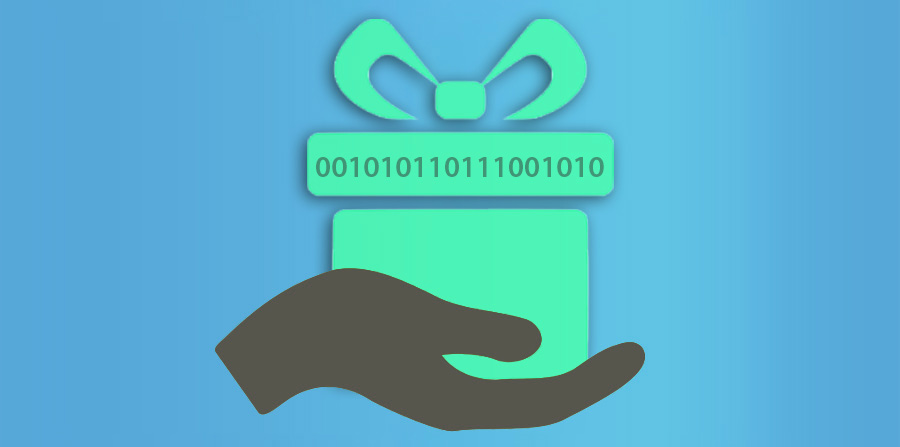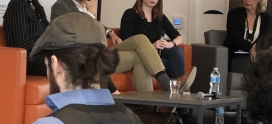Donate Your Data & Save A Life
We’ve all heard the request: “Give blood and the life you save may be your own”. Also, the many pleas to donate your organs to save others in need of transplants. Both these gestures are well worthwhile and many people have done so – or plan to do so. All good for sure. But now is the time for us to “donate” our health information.
Why?
Perhaps this is a foreign concept to you in that you’ve never thought about your health data as being anything other than what your doctor might have. But it’s way more than that!
Consider how much your data, when added to other data, can lead to discovery.
Perhaps cross referencing your data with that of thousands of others will lead to the discovery of how people respond to new medications or the nuances of how they present with a disease in the first place. That’s just two items but there are many more and it goes far beyond current practice.
But, to get there, it will be a must for everyone to be willing to share their health data. Now, this doesn’t mean sharing your identity or name or address (we call this “de-identification”) but it does mean sharing diagnosis and outcomes. This is an important distinction.
What we need is a check box on driver licence applications and health forms …
Part of the problem in getting health data to scientists, and others who will be able to use it for health analysis, is there is such a lack of awareness about the good that can come from doing so. When you add in a fear of health data being used for ill (bad pun I know), it’s a huge hill to climb.
We really need doctors and pharmacists and agencies like Heart & Stroke to join in the call. You can help by asking your doctor about this. Let physicians know you are willing to share your data. Encourage them to participate with hospitals and agencies in data analytics. If you donate to medical causes, ask about data sharing. You can also join the Dateva mailing list to stay informed about our work. But maybe I haven’t convinced you yet …
Facebook this is not
In an age where social media – like Facebook – is so popular, it’s somewhat ironic that people are blissfully unaware how much of their identity is being shared with advertisers and multiple platforms but the same people are not willing to share other information that would be game changing.
For those concerned about privacy, the real fear is in not knowing how much of “you” is available to advertisers and how your information is being used. If you are a user of Facebook, Twitter, Instagram and other platforms, you are actually more well known than you imagine.
How so?
Well, one example that has recently come to light is how Donald Trump’s campaign team invested more dollars into Facebook advertising than anything else – millions and millions of dollars. These Facebook ads were targeted to the specific demographics the campaign was looking to influence. So, rather than buy a TV spot that would go out to many thousands – but have the same message – the Facebook ads would go out to thousands but have thousands of different messages targeted to each individual.
This type of very direct advertising is not new science per se (often referred to as psycho graphics) but what is new is the use of data – big data – to be more precise than ever.
Imagine you and your best friend looking at Facebook and each of you seeing a different election ad but for the same candidate. That’s what we are talking about here. That way, even if you both have differences of opinion, you will still get a message that may sway you in some way – and sway you because the text is targeting your feelings and attitudes specifically known to the advertiser because of how and what you do on Facebook.
If you use social media tools, this is happening whether you like it or not! While it is true you can dampen down some of the data from being exposed, you can’t stop all of it and not the most significant aspects. It’s actually part of the agreement you accept for being able to use the tools for free. So, if you use them, they get your data and can use and sell it how they choose.
Are you worried yet?
I would argue you might want to be worried about this but I think it actually helps my case here. The reason is your health data would not become the same thing at all. In fact, through de-identification, the release of your health data can save lives (maybe your own) but will not lead to such intrusions as you get with social media. The intent of Dateva’s mission in particular is not to sell to advertisers and inundate users with useless spam, but work with doctors and researchers and others to develop improved health outcomes.
Unless you are really being selfish (about your data) I don’t think you can argue that commercial enterprise should have a priority over the other good things that can happen with (and from) sharing health data.
It may be true that using Facebook can lead you to that piece of new fashion you so really want, but the release and use of your “likes” and “shares” and other surfing habits isn’t going to do much to change the world. If you have a choice – and you do – which matters more in the shape and scope of things?
But I don’t want others to know I’m sick or have a disease!
For those of you who worry about the insurance industry using your health data to deny coverage, consider that you must already answer applications truthfully. I would also argue that the advancements that will surely come from having data available to do proper analytics, will make getting insurance easier. And, remember, we are talking anonymized data – it isn’t you – as an identifiable person – but your health indicators that are available for the kind of use I am talking about here. Obviously, the direct identifiable should be and would be protected in any legitimate research purpose.
So, to be a participant in sharing data, is to say you are doing everything you can do to participate in health promotion and prevention. Not only that, the discoveries using health data will assist in preventing or eliminating pre-existing conditions – and managing how heredity influences your health. That’s too important to ignore.
This isn’t a dream but a reality already. As we see with Facebook – and buyers of their data (really your data) – there are very precise things that can happen if and when you have the information to use.
Have I convinced you? Tell us what you think? Are you willing to share your health data through proper and guarded channels? Would you be upset if your doctor uses the information to help other patients? Where do you draw the line in privacy and sharing?




Pingback: compare xifaxan prices
Pingback: how to order rifaximin uk buy over counter
Pingback: buy cheap avodart cost at walmart
Pingback: discount staxyn generic cheap
Pingback: buy cheap itraconazole cheap online canada
Pingback: buy cheap fildena uk suppliers
Pingback: buy gabapentin purchase australia
Pingback: buy flexeril cyclobenzaprine online cheapest
Pingback: buy dutasteride cost on prescription
Pingback: walmart prices for androxal
Pingback: how to order enclomiphene generic where to buy
Pingback: sans ordonnance kamagra bonne prix pharmacie en ligne